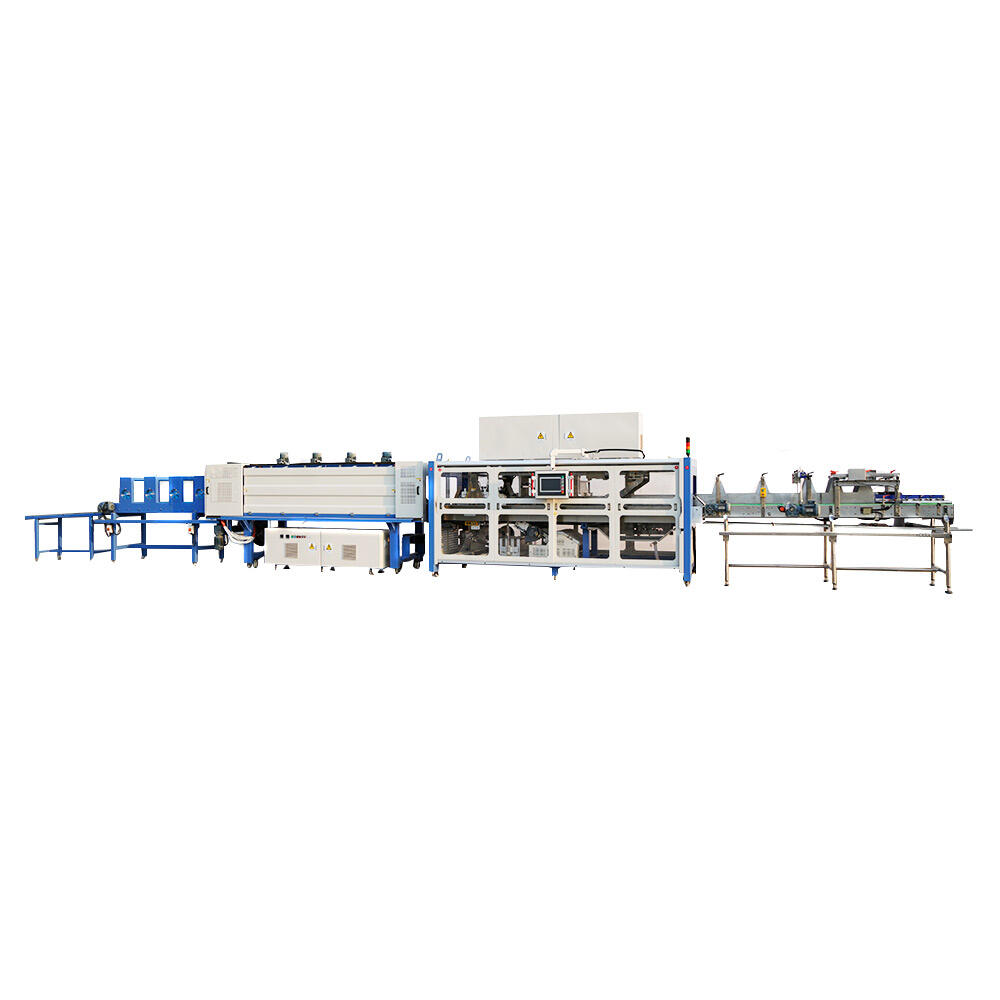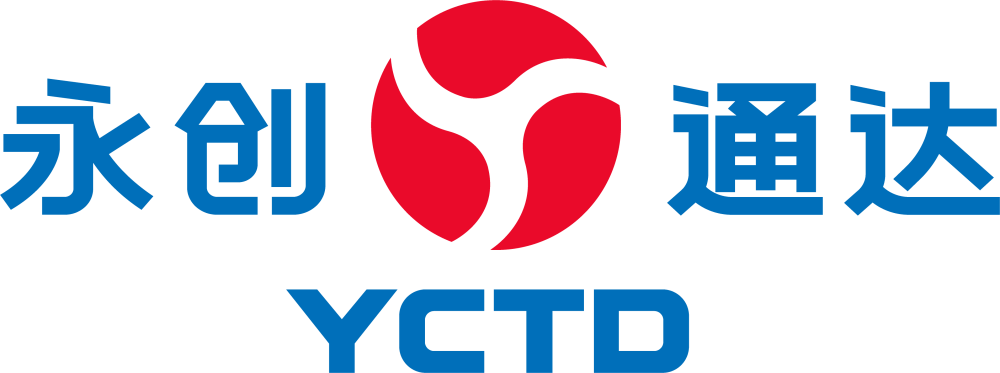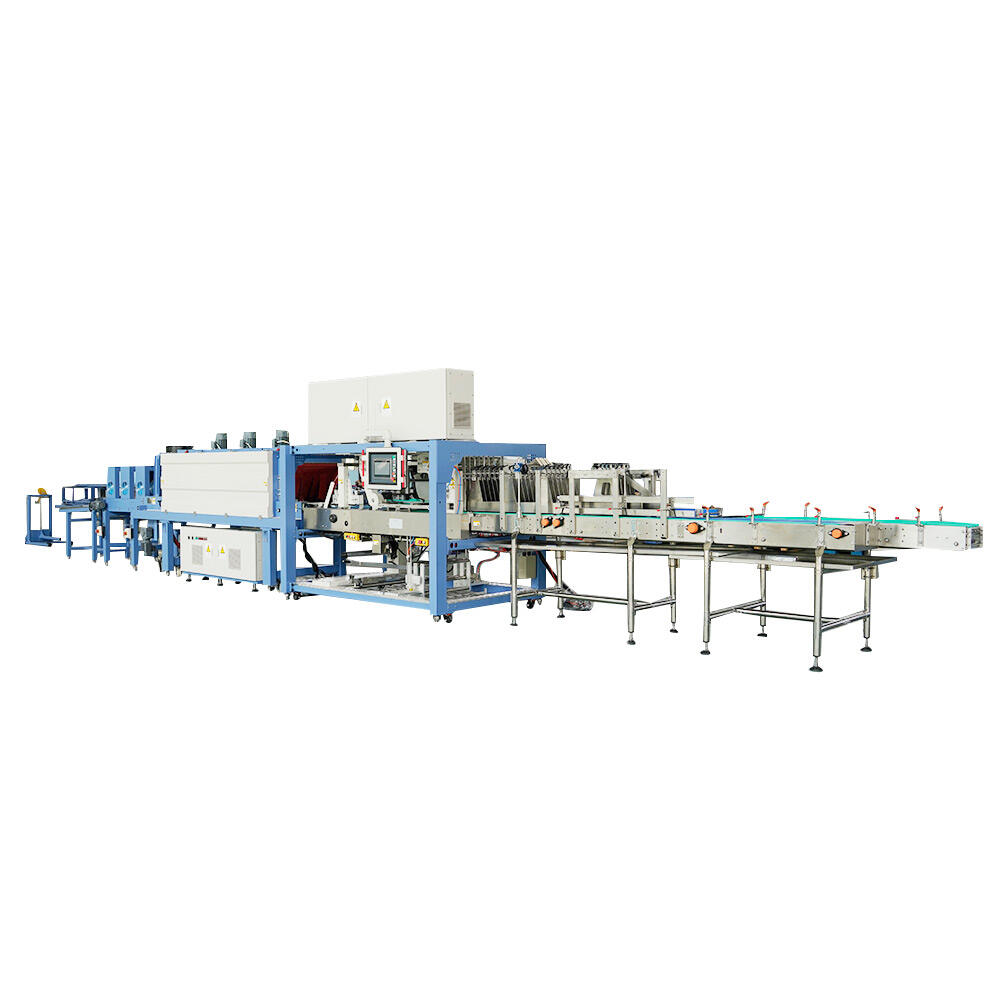Revolutionizing Production Lines with Advanced Case Packing Solutions
Modern manufacturing facilities are constantly seeking ways to enhance their operational efficiency and maximize productivity. At the heart of many successful production lines lies the case packer, an innovative automation solution that has transformed the way products are packaged and prepared for distribution. These sophisticated machines have become indispensable tools in various industries, from food and beverage to pharmaceuticals and consumer goods.
The integration of a case packer into production workflows represents a significant step toward achieving optimal operational efficiency. These systems not only accelerate packaging processes but also ensure consistency, reduce labor costs, and minimize product damage. As manufacturers face increasing pressure to meet rising consumer demands while maintaining quality standards, the role of case packers has become more crucial than ever.
Core Benefits of Case Packer Implementation
Enhanced Operational Speed and Efficiency
The implementation of a case packer dramatically increases production line speeds compared to manual packaging operations. Modern case packers can handle hundreds of products per minute, maintaining consistent speed and precision throughout extended production runs. This remarkable throughput capability ensures that manufacturers can meet demanding production schedules and scaling requirements with ease.
Beyond raw speed, case packers excel in maintaining operational consistency. Unlike human operators who may tire or vary in performance, these machines deliver the same high-quality results hour after hour. This consistency not only improves overall efficiency but also reduces the likelihood of packaging errors and product damage.
Significant Cost Reduction and ROI
The financial benefits of implementing a case packer extend far beyond immediate labor cost savings. While the initial investment may seem substantial, the long-term return on investment is compelling. Reduced labor requirements, minimized product waste, and increased production capacity all contribute to a healthy bottom line.
Organizations typically experience a dramatic decrease in packaging-related expenses within the first year of implementation. The reduction in material waste alone, achieved through precise control and consistent packaging processes, can justify the investment in a case packer system.

Technical Innovations in Modern Case Packing Systems
Advanced Control Systems and Automation
Today's case packers incorporate sophisticated control systems that enable seamless integration with existing production lines. These systems utilize advanced sensors and programming to ensure optimal performance and minimal downtime. The ability to make real-time adjustments and maintain precise control over packaging parameters ensures maximum efficiency and reliability.
Machine learning capabilities are increasingly being incorporated into case packer designs, allowing these systems to adapt and optimize their performance based on operational data. This continuous improvement capability ensures that the equipment becomes more efficient over time, further enhancing its value to the organization.
Flexibility and Product Handling Capabilities
Modern case packers are designed with flexibility in mind, capable of handling various product sizes, shapes, and packaging configurations. Quick changeover capabilities allow manufacturers to switch between different product runs with minimal downtime, maintaining high efficiency levels across diverse production requirements.
Advanced product handling mechanisms ensure gentle treatment of items throughout the packaging process, reducing product damage and waste. This is particularly important for delicate items or premium products where maintaining product integrity is crucial for customer satisfaction and brand reputation.
Environmental Impact and Sustainability Benefits
Reduced Material Waste
Case packers contribute significantly to sustainability efforts by minimizing packaging material waste. The precise control and consistent operation of these machines ensure that packaging materials are used efficiently, with minimal overuse or damage. This reduction in waste not only benefits the environment but also contributes to cost savings.
Many modern case packers are designed to work with eco-friendly packaging materials, supporting manufacturers' sustainability initiatives. The ability to optimize material usage while maintaining package integrity helps organizations meet their environmental responsibilities without compromising on performance.
Energy Efficiency and Resource Conservation
The latest generation of case packers incorporates energy-efficient technologies that reduce power consumption compared to older equipment or manual operations. Smart power management systems ensure that energy is used only when needed, contributing to lower operational costs and reduced environmental impact.
Water and compressed air consumption are also optimized in modern case packing systems, further supporting resource conservation efforts. These efficiency improvements align with corporate sustainability goals while delivering tangible operational benefits.
Future Trends and Industry Outlook
Integration with Industry 4.0
The future of case packing technology is closely tied to Industry 4.0 principles, with increasing integration of IoT sensors, data analytics, and cloud connectivity. These advanced features enable real-time monitoring, predictive maintenance, and optimization of packaging operations based on comprehensive data analysis.
Connected case packers will become central components in smart manufacturing environments, contributing to the overall digital transformation of production facilities. The ability to gather and analyze operational data will drive continuous improvement in efficiency and productivity.
Emerging Technologies and Capabilities
Innovative developments in robotics and artificial intelligence are expanding the capabilities of case packing systems. Next-generation machines will offer even greater flexibility, faster changeover times, and improved ability to handle complex packaging requirements.
Augmented reality interfaces and remote monitoring capabilities are also emerging as valuable features in modern case packers, enabling more efficient maintenance and operation while reducing the need for on-site technical support.
Frequently Asked Questions
What types of products can be handled by a case packer?
Case packers can handle a wide range of products across various industries, including bottles, cans, pouches, cartons, and other rigid or flexible containers. Modern systems can be configured to accommodate different product sizes, shapes, and packaging requirements, making them versatile solutions for diverse manufacturing needs.
How long does it take to see a return on investment from a case packer?
While ROI varies depending on factors such as production volume and current operational costs, many organizations experience significant returns within 12-24 months of implementation. The combination of reduced labor costs, improved efficiency, and decreased waste typically leads to rapid recovery of the initial investment.
What maintenance requirements should be considered for case packers?
Modern case packers are designed for reliability and easy maintenance, typically requiring scheduled preventive maintenance checks and occasional parts replacement. Regular cleaning, lubrication, and inspection of key components ensure optimal performance and longevity. Many systems also include predictive maintenance features that help prevent unexpected downtime.

